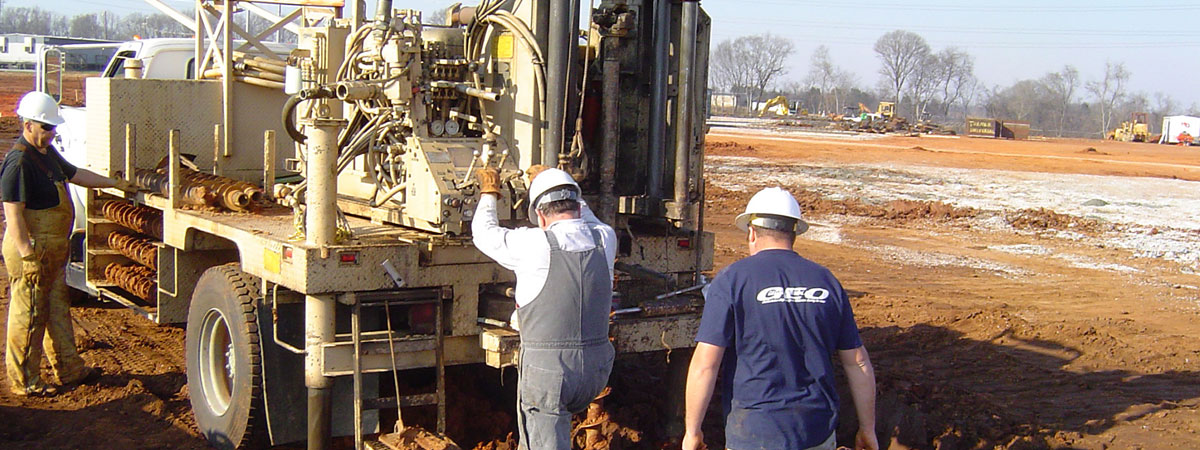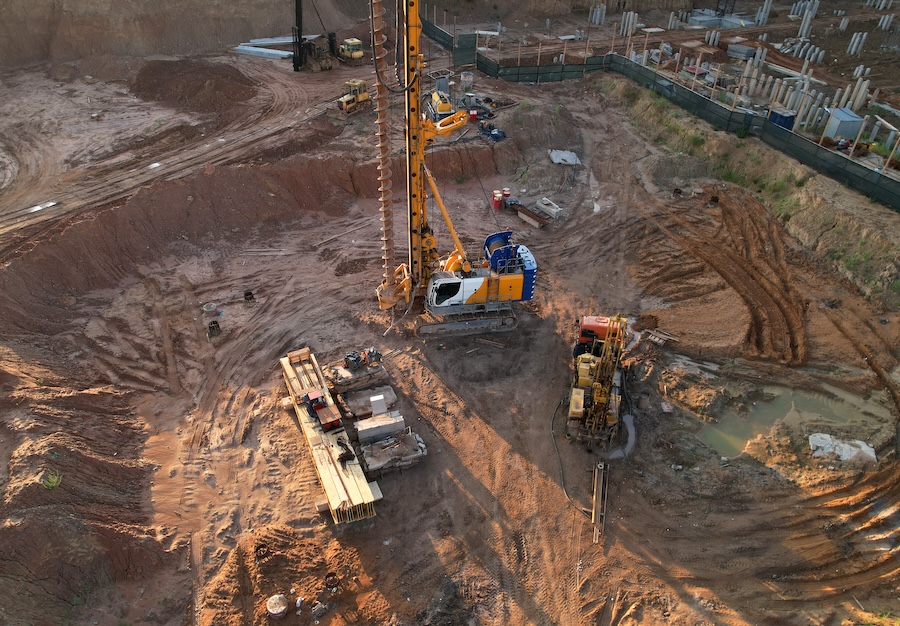The Benefits of Partnering with a Leading Consulting Engineer for Your Organization Needs
The Benefits of Partnering with a Leading Consulting Engineer for Your Organization Needs
Blog Article
The Interdisciplinary Approaches in the Geotechnical Industry: Connecting the Gap In Between Design, Geology, and Environmental Science for Ideal Project End Results
The combination of engineering, geology, and ecological science within the geotechnical sector is not merely useful; it is critical for achieving optimal project end results. What techniques might emerge to promote this crucial collaboration and boost the effectiveness of geotechnical practices?
Importance of Interdisciplinary Cooperation
The importance of interdisciplinary cooperation in the geotechnical industry can not be overstated. Effective geotechnical jobs need the combination of diverse competence from different fields, including engineering, geology, and ecological science. This partnership ensures that all aspects of a project are considered, leading to extensive remedies that resolve complicated difficulties.
Interdisciplinary cooperation fosters advancement by allowing experts to share insights and approaches that might not be apparent when operating in isolation (geotechnical engineers). By leveraging the toughness of numerous techniques, teams can determine prospective dangers, enhance layout procedures, and boost the sustainability of geotechnical projects. Additionally, such cooperation advertises an all natural understanding of site-specific conditions, which is essential for exact analysis and decision-making.
The complexity of geotechnical jobs demands a worked with method to analytical. When engineers, geologists, and environmental researchers function together, they can produce a natural approach that lines up technical demands with environmental considerations and regulative conformity. This harmony not just boosts task end results yet additionally adds to the long-term strength of facilities. Eventually, interdisciplinary collaboration is vital for advancing ideal methods and attaining quality in the geotechnical market.
Key Duties of Each Discipline
Collaboration amongst different techniques is not simply beneficial; it is important for the effective implementation of geotechnical projects. Each technique-- engineering, geology, and ecological science-- plays an unique yet interconnected function that contributes to forecast efficacy and sustainability.
Geotechnical engineers are largely responsible for developing structures and guaranteeing structural honesty. They analyze soil and rock residential properties to examine load-bearing capabilities, giving crucial data for risk-free building techniques. Their knowledge allows the formulation of cutting-edge solutions to complex difficulties.

Environmental researchers examine the potential effects of building on ecosystems and water resources. They perform environmental analyses and create reduction methods to reduce negative results. By incorporating ecological considerations, they ensure conformity with guidelines and promote sustainability throughout the task lifecycle.
Study of Successful Combination
Effective assimilation of geotechnical disciplines can be exhibited via various study that highlight the performance of teamwork in addressing complicated design challenges. One remarkable example is the building and construction of the Hong Kong-- Zhuhai-- Macau Bridge, where a collective method including geotechnical design, geology, and ecological scientific research was essential. Designers and geologists operated in unison to examine the seabed problems and maximize the foundation style, guaranteeing security and minimizing environmental impact.
One more impactful case is the improvement of slope security in the San Francisco Bay Location, where an interdisciplinary group integrated geotechnical evaluation with environmental assessments. By integrating geological surveys and hydrological their website researches, the team efficiently determined potential landslide risks and carried out effective mitigation measures, boosting safety and sustainability.
Additionally, the redevelopment of Brownfield sites frequently requires a multidisciplinary approach. In one situation in Chicago, partnership amongst geotechnical engineers, ecological scientists, and city planners led to the successful removal of contaminated dirt, permitting the secure change of the site right into a neighborhood park. These instance research studies illustrate that interdisciplinary collaboration not only addresses technical challenges yet additionally fosters ingenious remedies that benefit both projects and communities.
Difficulties in Multidisciplinary Projects

Furthermore, collaborating schedules and process amongst different teams can be troublesome, particularly when each self-control has unique project milestones and deliverables. This misalignment can cause hold-ups and increased costs. The difficulty of source allocation likewise looms large; making sure that customized experience is available at important junctures requires mindful planning and insight.
Finally, governing conformity presents another considerable obstacle. Each discipline might deal with various governing frameworks, and lining up these demands to satisfy task purposes can be taxing and intricate. Dealing with these difficulties necessitates solid leadership and effective interaction techniques to promote collaboration and make sure that multidisciplinary linked here teams work cohesively in the direction of shared objectives.
Future Trends in Geotechnical Practices
As the geotechnical market progresses, arising fads are reshaping techniques to attend to the difficulties dealt with in multidisciplinary projects - consulting engineer. One substantial pattern is the enhanced assimilation of advanced innovations, such as artificial intelligence and device knowing, into geotechnical analysis and layout. These innovations enhance anticipating modeling and danger analysis, enabling engineers to make even more informed decisions throughout the task lifecycle

Moreover, the adoption of digital doubles and real-time surveillance systems is becoming much more prevalent. These devices promote continuous assessment of dirt conditions and architectural efficiency, permitting prompt treatments when issues develop.
Final Thought
In conclusion, the integration of design, geology, and ecological scientific research is important for attaining optimum end results in the geotechnical market. Successful case studies illustrate the advantages of this technique, while acknowledging the obstacles faced in Continued multidisciplinary tasks.
The integration of engineering, geology, and environmental science within the geotechnical sector is not just beneficial; it is critical for attaining optimum task end results. Efficient geotechnical projects require the combination of diverse expertise from various areas, consisting of engineering, geology, and ecological scientific research.Browsing the complexities of multidisciplinary jobs in the geotechnical market offers a number of considerable obstacles.As the geotechnical market evolves, emerging trends are reshaping techniques to deal with the challenges faced in multidisciplinary jobs. Geotechnical engineers are significantly working together with ecological researchers to make sure that jobs line up with sustainability goals and conform with regulatory needs.
Report this page